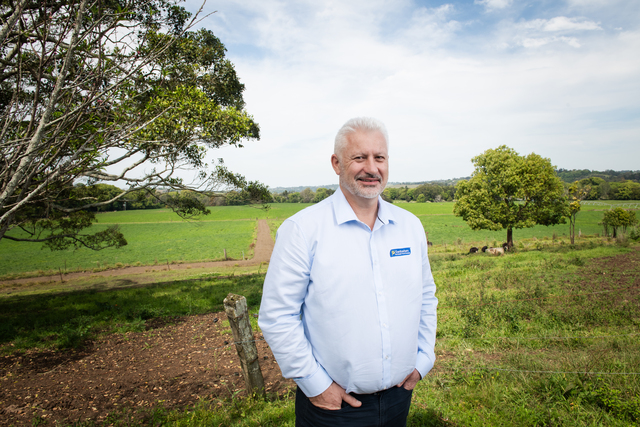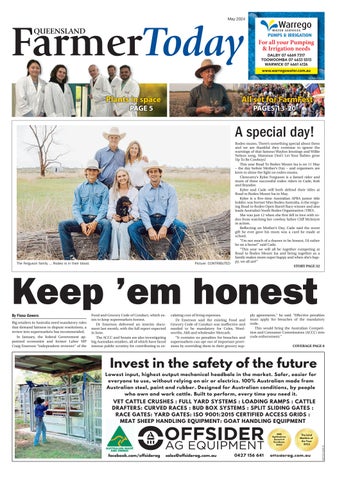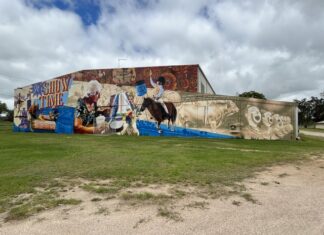Key players give their thoughts on the alliance that is helping educate consumers on what constitutes Australian owned.
Todd Saunders, executive general manager of Sanitarium Health Food Company, which has been Australian owned since 1898 and is a trusted producer of some of Australia’s most iconic breakfast brands including Weet-Bix:
“Like our coalition partners, we don’t want there to be any confusion for consumers about the authenticity of Sanitarium’s Aussie ownership or the quality that endures within our product range,“ Mr Saunders said.
“We know how intrinsically proud Australians are of the great things that come from our country.
“This Includes ‘country of ownership’ labelling information and introducing better tools to support consumers in making an informed choice.
“This can help us continue to drive economic growth and provide job security for our employees and the regional farmers and suppliers who help us to feed the nation.
“By choosing the product of an Australian owned business such as Sanitarium or our coalition partners, customers
are not just making a purchase, they’re making an investment in supporting local jobs and economies.“
Peta Allsopp, SPC chief marketing officer – one of Australia’s most iconic food brands that’s been part of the Australian grocery basket for 112 years – say that like their coalition counterparts, they are proud to remain 100pc Australian made and owned, but have certainly felt the impact of foreign competition in recent times.
“The current cost of living crisis is very real and, consequently, consumers are making very considered values-based choices. At times, they are either knowingly or unknowingly choosing imported options from lower cost producing countries such as China and South Africa.
“We are immensely proud of the quality of our SPC products and more committed than ever to delivering superior value to consumers, while working closely with our grower partners to innovative and become more competitive.
“So, if a small labelling update to include ‘country of ownership’ information can help better inform consumer choice, while protecting our iconic brands, industries and farmers alike, then that is something we fully support,” she says.
Bethaney George, Mayver’s Foods chief executive officer:
“With a mission to deliver high quality, 100pc natural, Australian-made products, Mayver’s Foods is proud family-
owned and Australian made business, operating in categories saturated by foreign owned brands and imported products.
“Cost of living pressures are being felt far and wide, impacting all parts of the supply chain, which is why we have
such a steadfast commitment to local sourcing and sustainability – by turning Australian ‘wonky fruit’ (otherwise
destined to become food waste) into delicious jams, supporting Australian growers for our peanuts, almonds and
local suppliers across our entire value chain.
“Our ‘local first’ pledge is more than just a strategy; it’s our promise to support our local, Australian communities
and, if enhanced labelling can help support this mission and better aid consumer choice, then that is something we
fully stand behind.“
Chris Connors, Sunshine Sugar chief executive officer:
Sunshine Sugar is a 100pc Australian sugar manufacturer, owned and operated in partnership with local sugarcane
farmers.
“Sunshine Sugar is an incredibly proud brand in the Australian marketplace,” said Mr Connors.
“We are the only Australian owned refined sugar manufacturer and our business model is uniquely Australian.
“As somewhat the underdog in Australian sugar manufacturing, Sunshine Sugar is grown, made and owned in New South Wales. We aren’t as big as some of our overseas owned competitors, but have a strong customer base that highly regards our Australian roots and the consistent, reliable product quality and service we provide.
“Having our operations based in the regional communities of the NSW Northern Rivers, we see the struggle consumers face when trying to support Australian farmers and the research confirms that this struggle is occurring nation-wide.
“The concept of making clear the country of ownership – along with tools to help inform consumers seems like a step in the right direction – for Australian-owned businesses and our patriotic and supportive Australian consumer base.”












